Since August 2011, Kaohsiung Medical University has reviewed and revised its internal evaluation regulations in accordance with the “Ministry of Education’s Guidelines for the Recognition and Review of University Self-Evaluation Mechanisms and Results.”
The university amended the following documents:
- Regulations for the Implementation of Self-Evaluation
- Regulations for the Appeal of Self-Evaluation Results
- Implementation Plan for the 2015 Academic Program and General Education Self-Evaluation
In April 2013, the university submitted an application to the Ministry of Education for official recognition of its self-evaluation mechanism.
Following approval by the Ministry in December 2013, the university has, since January 2014, conducted internal self-evaluations of academic units in two phases, in accordance with the recognized mechanism.
First-Cycle Self-Evaluation of Academic Programs and General Education in 2015 (Academic Year 104)
In the first cycle of self-evaluation conducted in 2015, a total of 32 units—including 31 academic departments, graduate institutes, and degree programs, along with the General Education Center—underwent evaluation.
These units completed their externally commissioned on-site evaluations in May 2015.
Following a comprehensive review by the university’s Self-Evaluation Steering Committee, the evaluation results were as follows:
- All 31 departments, institutes, and degree programs received a “Pass” rating
- The General Education Center received a “Conditional Pass”
After the evaluation, the university compiled a detailed report summarizing the planning, implementation process, and outcomes.
This Self-Evaluation Results Report was submitted in June 2016 to the Higher Education Evaluation and Accreditation Council of Taiwan (HEEACT), the agency commissioned by the Ministry of Education.
In October 2016, the Ministry of Education officially recognized the evaluation results of KMU’s 2015 self-evaluation.
The approval granted an effective validity period from 2015 to 2020, aligned with the second cycle of program accreditation, and exempted the university from participating in the second-cycle external evaluations for both general education and academic programs.
Second-Cycle Self-Evaluation of Academic Programs in 2017 (Academic Year 106)
The second-cycle self-evaluation conducted in 2017 (Academic Year 106) focused on two newly established programs that had been in operation for less than three years during the first-cycle evaluation in 2015.
Both programs completed their externally commissioned on-site evaluations in March 2017, and the evaluation committees recommended a “Pass” rating for each.
Following the evaluations, the university urged the evaluated units to review the suggestions for improvement listed in the on-site evaluation reports, and to formulate and implement self-improvement plans accordingly.
For the 32 units evaluated in the 2015 first-cycle self-evaluation, including academic programs and the General Education Center, self-improvement plans had already been established in August 2015. These units were required to report progress every six months, and submitted their final implementation reports in October 2017.
In total, 599 suggestions for improvement were issued across the 32 units, all of which have now been addressed.
Since the General Education Center had received a “Conditional Pass” in the previous evaluation, the university arranged and supported a follow-up evaluation.
The Center completed its follow-up on-site evaluation in May 2018, with the evaluation committee recommending a “Pass” rating.
The results of the 2017 evaluations (including the two new programs and the follow-up evaluation of the General Education Center) were reviewed and approved by the university’s Self-Evaluation Steering Committee in August 2018, and subsequently submitted to the Higher Education Evaluation and Accreditation Council of Taiwan (HEEACT).
In December 2018, HEEACT officially recognized the results of the evaluations.
Simultaneously, the university requested the two evaluated units to develop and implement their own self-improvement plans, and continues to monitor their progress in addressing the evaluation recommendations.
Third-Cycle Program Accreditation and External Quality Assurance
The third-cycle program accreditation was conducted through external quality assurance recognition by two organizations: the Higher Education Evaluation and Accreditation Council of Taiwan (HEEACT) and the Taiwan Assessment and Evaluation Association (TWAEA).
The General Education Center commissioned TWAEA to carry out an on-site evaluation on March 22, 2022 (Academic Year 111).
The evaluation committee granted a “Pass”, with the recognition valid from July 2022 to June 2027.
The remaining 29 academic departments and programs commissioned HEEACT to conduct on-site evaluationsbetween September 19 and 23, 2022.
Among them:
- The Ph.D. Program in Biomedical Engineering received a rating of “Pass – 3-year validity”, effective from January 1, 2021 to December 31, 2023.
- The other 28 departments/programs received a rating of “Pass-6-year validity”, with recognition valid from January 1, 2021 to December 31, 2026.
The School of Medicine and Post-Baccalaureate Program in Medicine at Kaohsiung Medical University underwent a full accreditation review by the Taiwan Medical Accreditation Council (TMAC) in 2012 (Academic Year 101) and received a “Pass” status.
The validity period of this accreditation was from 2013 to 2019 (Academic Years 102–108).
In 2015, a follow-up evaluation was conducted based on newly revised standards, and the result upheld the original “Pass” status from the 2012 comprehensive review.
In 2019, another full accreditation review was conducted, and the School once again received “Accredited” status. The validity period for this cycle was from August 1, 2020 to July 31, 2023.
In the most recent 2023 full accreditation review (Academic Year 112), the School again received a result of “Accredited”, with the new validity period from August 1, 2024 to July 31, 2027.
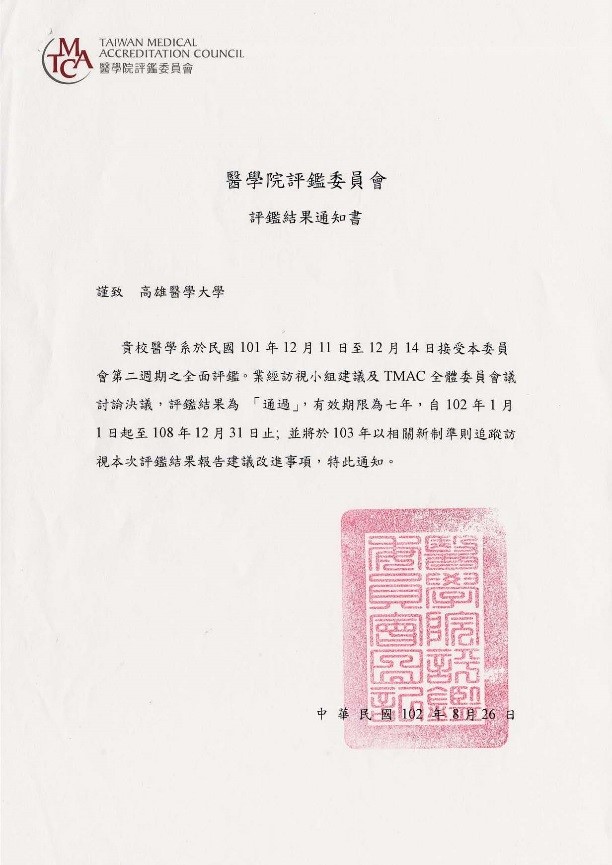 |
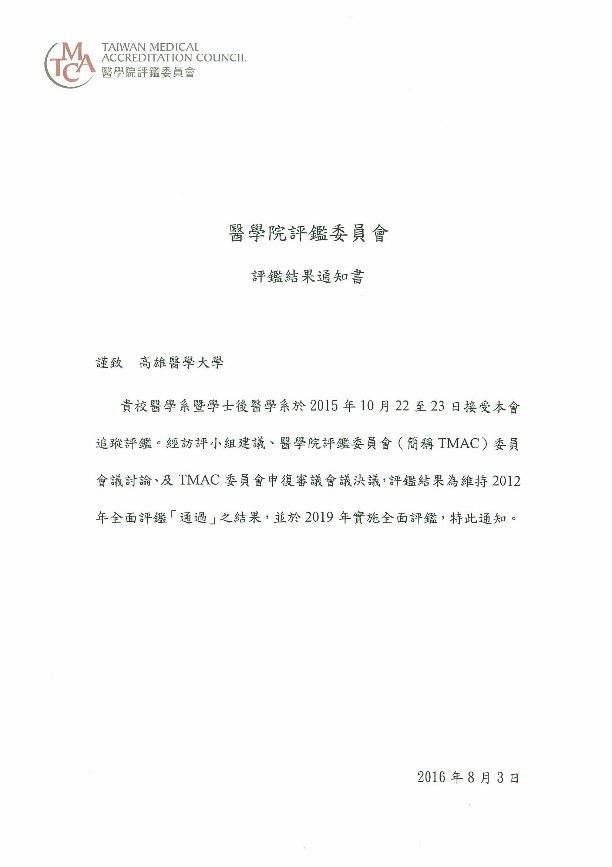 |
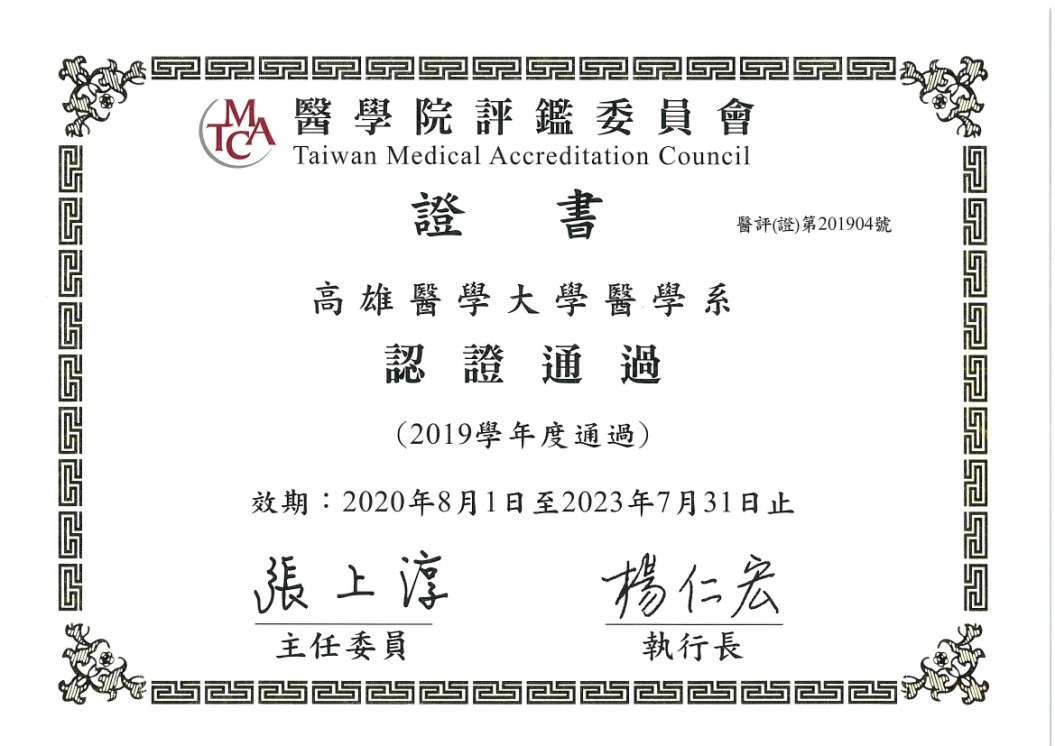 |
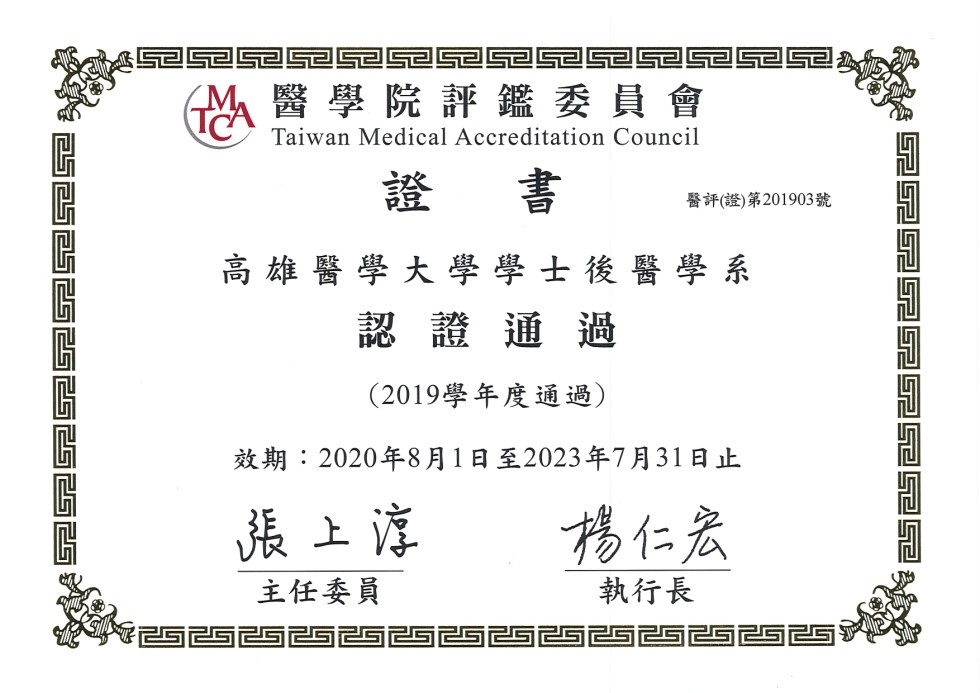 |
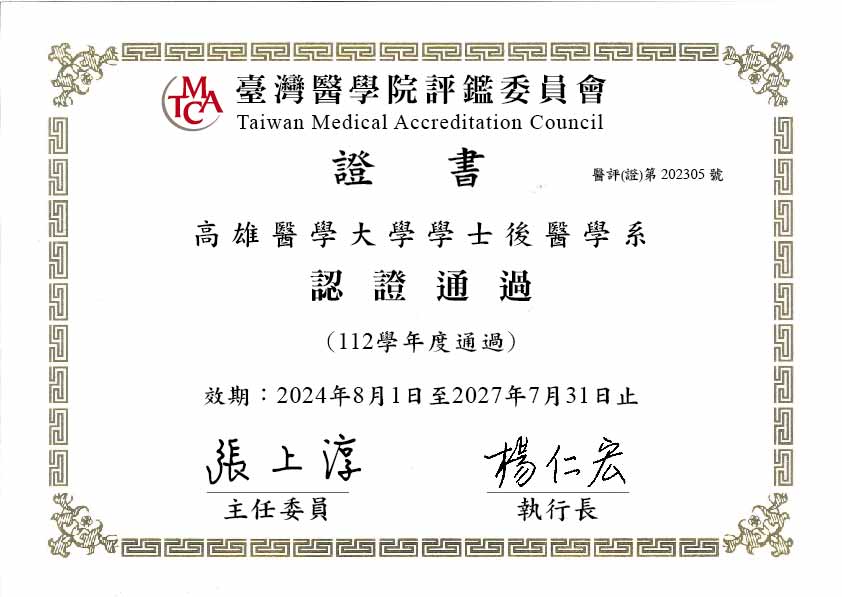 |
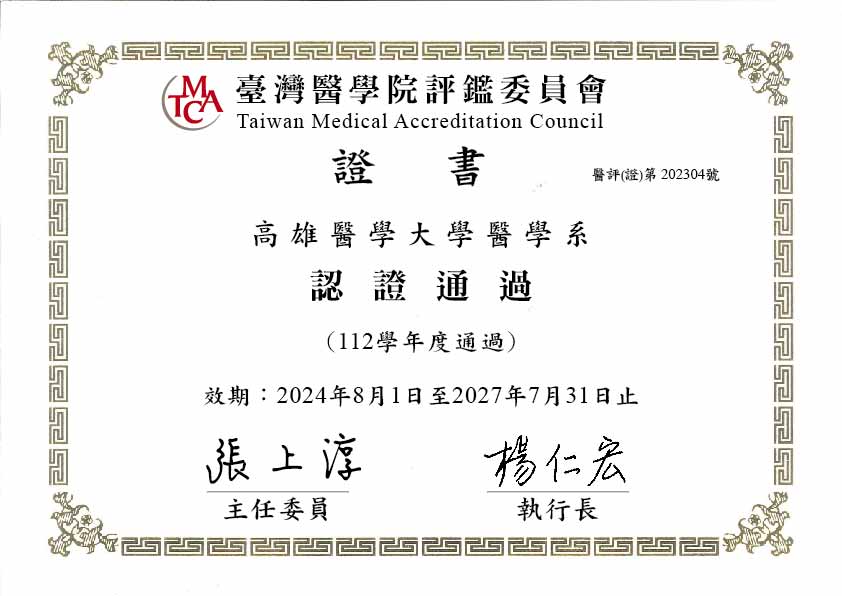 |
